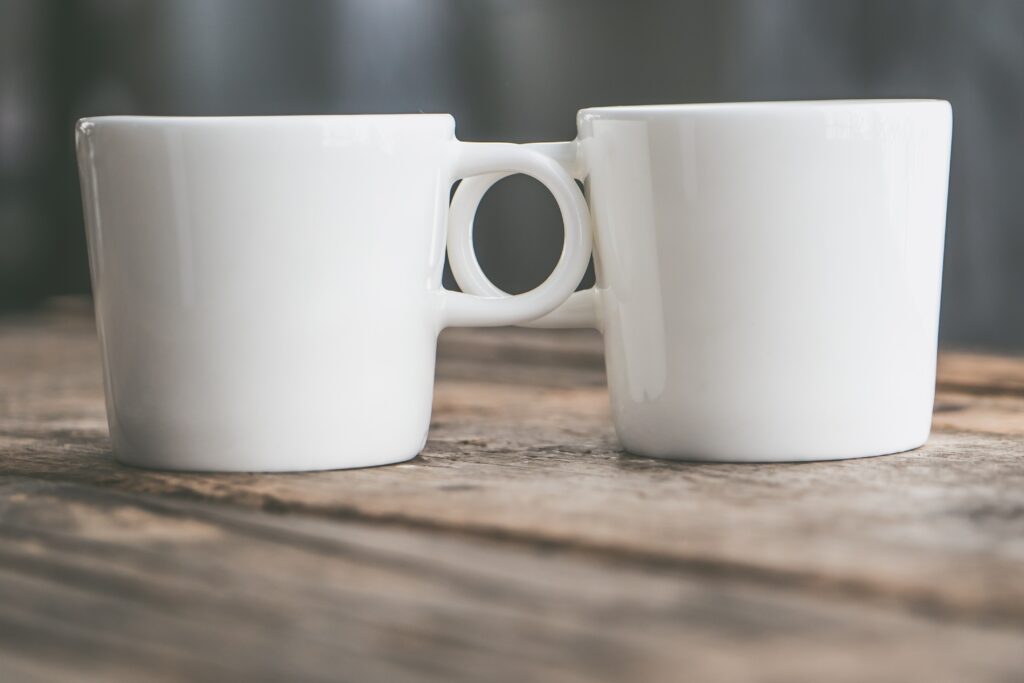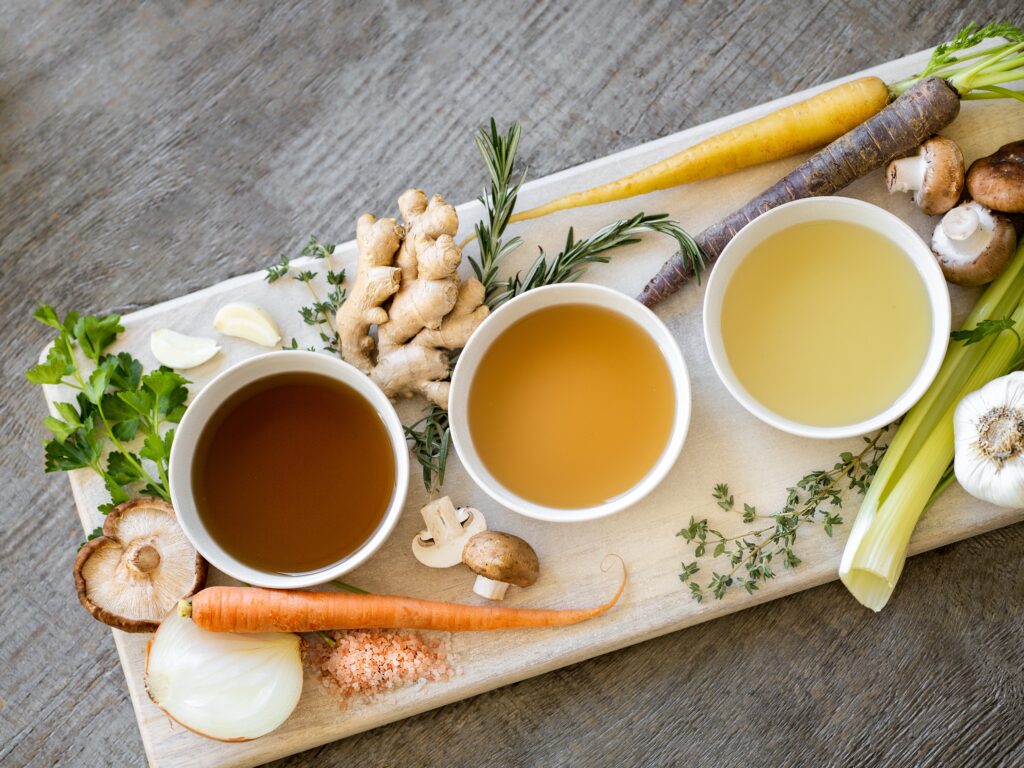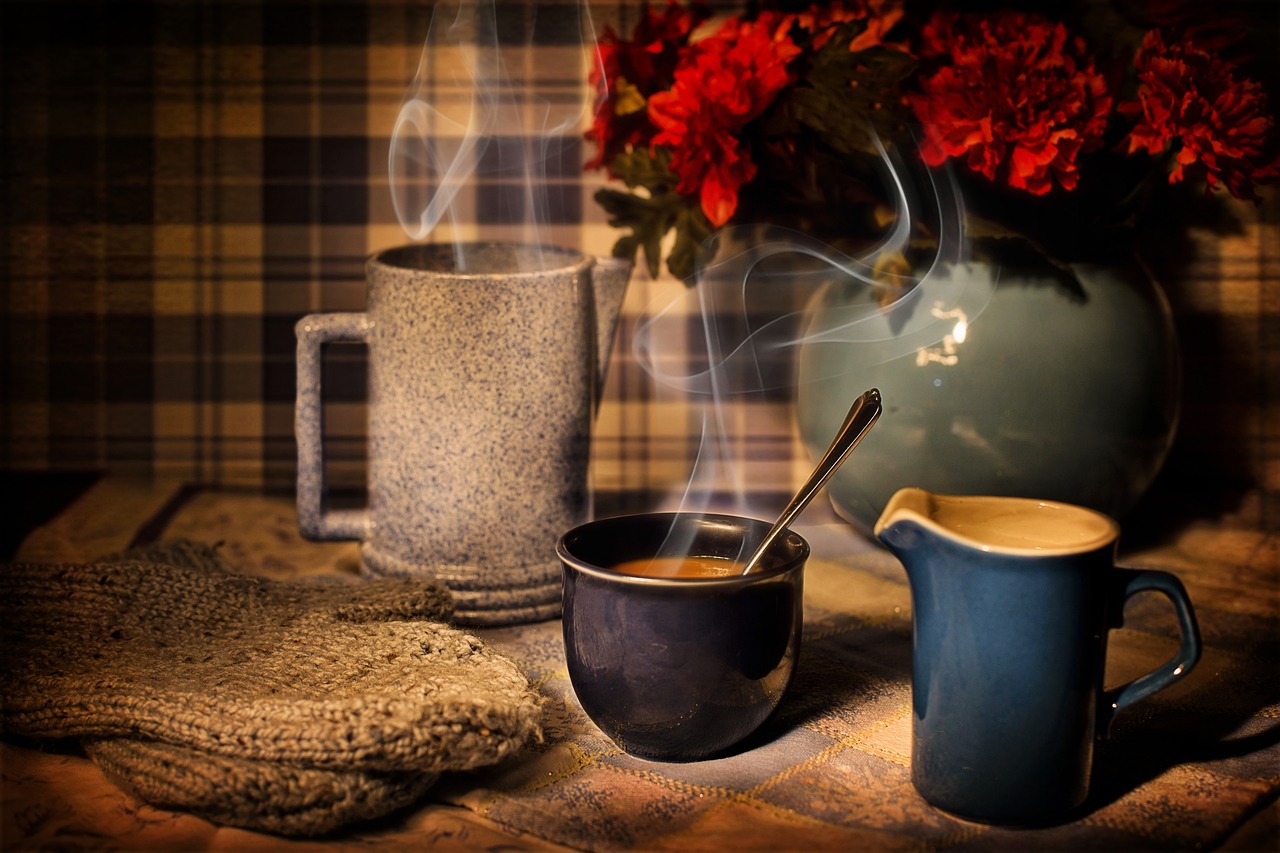You’ve just risen, and you’re navigating that delicate dance between sleep and wakefulness. Two old friends stand at the ready to help: coffee and tea, each with its unique charm. Coffee, bold and energizing, its aroma alone is enough to get the gears turning. On the other hand, tea with its myriad of flavors and calming effects seems just as appealing.
But have you ever wondered if you can enjoy both these beverages at the same time? Coffee and tea, while seemingly at odds, actually share some common ground. They both contain caffeine, are deeply embedded in various cultures worldwide, and have devoted followers who swear by their choice of morning brew. But can they truly exist harmoniously in one cup or even in the same morning ritual?
In this blog post, we’re brewing up answers, shedding light on the implications and potential benefits of mixing your coffee and tea. Whether you’re a caffeine connoisseur looking to explore new taste terrains or just curious about the health implications, this read is for you.

Does tea taste good when mixed with coffee?
The taste of tea mixed with coffee, often referred to as a “dirty chai” or “coffee tea”, can be an acquired taste and greatly depends on individual preference.
The flavor profile of this mixture can be quite complex, with the bold, robust taste of coffee combining with the delicate and often nuanced flavors of tea. The type of tea used also greatly impacts the taste. For instance, using black tea, which has a stronger flavor, might balance better with coffee than a subtle green or white tea.
When mixed together, these two beverages can create a unique flavor that is both robust and soothing. Some people enjoy the layered flavors, with the bitter notes of coffee being softened by the mellow tea. The addition of milk and sugar can further enhance and balance the flavors.
However, it’s important to remember that taste is subjective. Some people might enjoy the blend, while others may prefer to keep their coffee and tea separate. So, if you’re curious about the taste, give it a try! You might discover a new favorite combination.

Is it healthy to mix tea and coffee?
The health implications of mixing tea and coffee primarily relate to their shared active ingredient: caffeine. Both drinks contain caffeine, though coffee generally has a higher concentration. Consuming too much caffeine can lead to restlessness, insomnia, heart palpitations, and digestive problems.
If you’re mixing tea and coffee, you’ll be consuming more caffeine than drinking either beverage alone. Therefore, moderation is key to avoid consuming too much caffeine.
On the positive side, both tea and coffee have health benefits. Tea is known for its antioxidants, which can help protect your cells from damage. Coffee also has antioxidants and may help improve cognitive function, enhance physical performance, and reduce the risk of certain diseases.
However, it’s important to remember that while both drinks have benefits, they can’t substitute for a balanced diet and healthy lifestyle. Having said that, if you’re considering mixing coffee and tea regularly, it may be beneficial to discuss this with a healthcare professional, especially if you have underlying health conditions or are sensitive to caffeine.
Even if you have developed a taste, it is unhealthy to consume it in large amounts. Here is a list of health risks caused by excessive consumption of tea and coffee.
- Mineral and nutrient deficiency (like iron deficiency)
- Dehydration
- Bloating
- Addiction
- Miscarriage during pregnancy due to the caffeine content
- Cardiovascular and heart problems
- Anxiety, sleep disorder, and restlessness
- Sleeping problems
- Mineral and vitamin deficiencies
- Electrolyte imbalances
- Stomachache
- Nausea and vomiting
- Increase in total cholesterol
Both tea and coffee pose health hazards when consumed in excess or taken over a long time. Fluorine present in tea can affect the teeth and skeletal system. Long-term consumption can even lead to thiamine deficiency. Coffee also causes thiamine deficiency and increases acid production. That, in turn, causes burning pain in the chest or abdomen.
Even if you want to go ahead and incorporate this energy drink into your routine, make sure you intake it in limited amounts as the harmful effects of each get amplified.
Can I drink coffee and tea on the same day?
Yes, it is generally safe for most people to drink both coffee and tea on the same day. However, there are a few considerations to keep in mind.
- It’s important to consider your total caffeine intake. Both coffee and tea contain caffeine, with coffee typically containing more than tea. The Mayo Clinic advises that up to 400 milligrams of caffeine a day appears to be safe for most healthy adults, which is roughly the amount of caffeine in four 8-ounce cups of brewed coffee. The amount of caffeine in tea can vary but is usually less than coffee.
- Excessive caffeine can lead to restlessness, insomnia, heart palpitations, and digestive problems. Therefore, if you’re drinking both coffee and tea on the same day, keep an eye on your total caffeine consumption to avoid these side effects.
- Some people may experience stomach discomfort or acid reflux when consuming both coffee and tea, especially on an empty stomach. This is due to their natural acidity. If you’re prone to digestive issues, it may be wise to limit your consumption or drink these beverages with food.
Remember that everyone’s body reacts differently. Some people can drink coffee and tea on the same day without any problems, while others may be more sensitive to the effects of caffeine or acidity.
It’s always important to listen to your body and adjust your consumption accordingly. If you have any health concerns or if you’re sensitive to caffeine, it’s always a good idea to consult with a healthcare provider.
Yes, it’s generally okay to drink coffee right after tea. As long as you’re mindful of your total caffeine intake for the day and are not exceeding safe levels, you can enjoy both beverages.
Caffeine content in tea varies greatly depending on the type, but it’s usually less than that in coffee. Drinking coffee after tea will increase your caffeine levels more rapidly than if you were to space out your consumption, so be aware of how you’re feeling. Signs of too much caffeine can include restlessness, insomnia, or a rapid heartbeat.
In addition, both coffee and tea contain tannins which can potentially interfere with iron absorption. So, if you are someone who has iron deficiency or is at risk of it, you may want to avoid consuming tea or coffee during or immediately after meals.
It’s also worth noting that some people might experience an upset stomach or acid reflux when consuming these beverages, particularly on an empty stomach, due to their acidity.
So, while it’s typically okay to drink coffee right after tea, pay attention to your body and how it reacts. If you’re feeling jittery or noticing any discomfort, it might be a good idea to space out your consumption more. And as always, if you have any health concerns, it’s best to consult with a healthcare provider.

Can you drink coffee after ginger tea?
Yes, you can drink coffee after having ginger tea. There are no known negative interactions between ginger tea and coffee.
Ginger tea is a popular herbal tea known for its potential health benefits, such as aiding digestion, easing nausea, and reducing inflammation. Therefore, it could potentially help soothe the stomach if coffee tends to make you feel a bit queasy.
However, you’ll want to keep in mind the caffeine content in coffee. If you’re sensitive to caffeine or if you’re drinking coffee later in the day, it could potentially affect your sleep or make you feel jittery. The caffeine content in ginger tea is negligible to none.
Remember to listen to your body and monitor how you feel when you drink coffee after ginger tea. If you have any health concerns, it’s always a good idea to consult with a healthcare provider.
Should I drink coffee or tea on an empty stomach?
Navigating the debate between coffee vs tea on an empty stomach can be tricky. Both are beloved morning beverages, but their impact on an empty stomach varies. Let’s explore some key points to consider:
- Acidity: Both coffee and tea are acidic, which could potentially irritate your stomach lining, leading to discomfort or acid reflux, especially when consumed on an empty stomach.
- Caffeine Content: Coffee generally contains more caffeine than tea. Consuming a high amount of caffeine on an empty stomach can lead to restlessness, jitteriness, and may even increase the production of stomach acid.
- Stimulating Effects: Drinking coffee or tea on an empty stomach can kick-start your metabolism for the day, providing a quick energy boost. However, this might also cause blood sugar levels to drop, leading to an energy slump later.
- Tea Varieties: The type of tea can make a difference. For instance, herbal teas, like chamomile or peppermint, are usually less acidic and can be gentler on the stomach compared to black or green teas.
- Hydration: Both coffee and tea have diuretic properties, especially when consumed in large amounts. It’s important to balance their intake with adequate water consumption to prevent dehydration.
Ultimately, the choice between coffee or tea on an empty stomach depends on your personal tolerance and how your body responds. If you experience discomfort, consider having your morning cup with a light breakfast.
Can you drink green tea and coffee together?
Mixing green tea and coffee might sound unconventional, but it’s not unheard of. The resulting blend offers a unique flavor and combined benefits. Let’s delve into a few points to consider when pairing these popular caffeinated beverages:
- Caffeine Content: Both green tea and coffee contain caffeine, though coffee has a higher amount. Drinking them together might lead to a high caffeine intake, which could cause jitteriness, insomnia, or even heart palpitations in sensitive individuals.
- Flavor Profile: Coffee is rich and robust, while green tea is subtle and slightly grassy. The combination could provide a unique taste experience, balancing the bitterness of coffee with the freshness of green tea.
- Health Benefits: Both green tea and coffee come packed with antioxidants, offering a combined punch of health benefits, including potential heart health improvement, cancer risk reduction, and enhanced brain function.
- Digestion: Some people might find consuming both on an empty stomach irritation due to their natural acidity.
- Hydration: Although they have hydrating qualities, both green tea and coffee are also diuretics. It’s essential to balance your intake with enough water.
Remember, everyone’s taste and tolerance for caffeine are different. So, experiment mindfully to find out what works best for you.
Conclusion
Whether it’s the rich allure of coffee or the soothing subtlety of tea, or a daring mix of both, your choice comes down to personal preference, health considerations, and how your body responds to these beverages.
While mixing coffee and tea may lead to unique flavor profiles and combined health benefits, it’s essential to consider factors like total caffeine intake, potential hydration needs, and individual digestive tolerance. Always remember that moderation is key and adjust based on your body’s feedback. Happy sipping on your beverage of choice!





